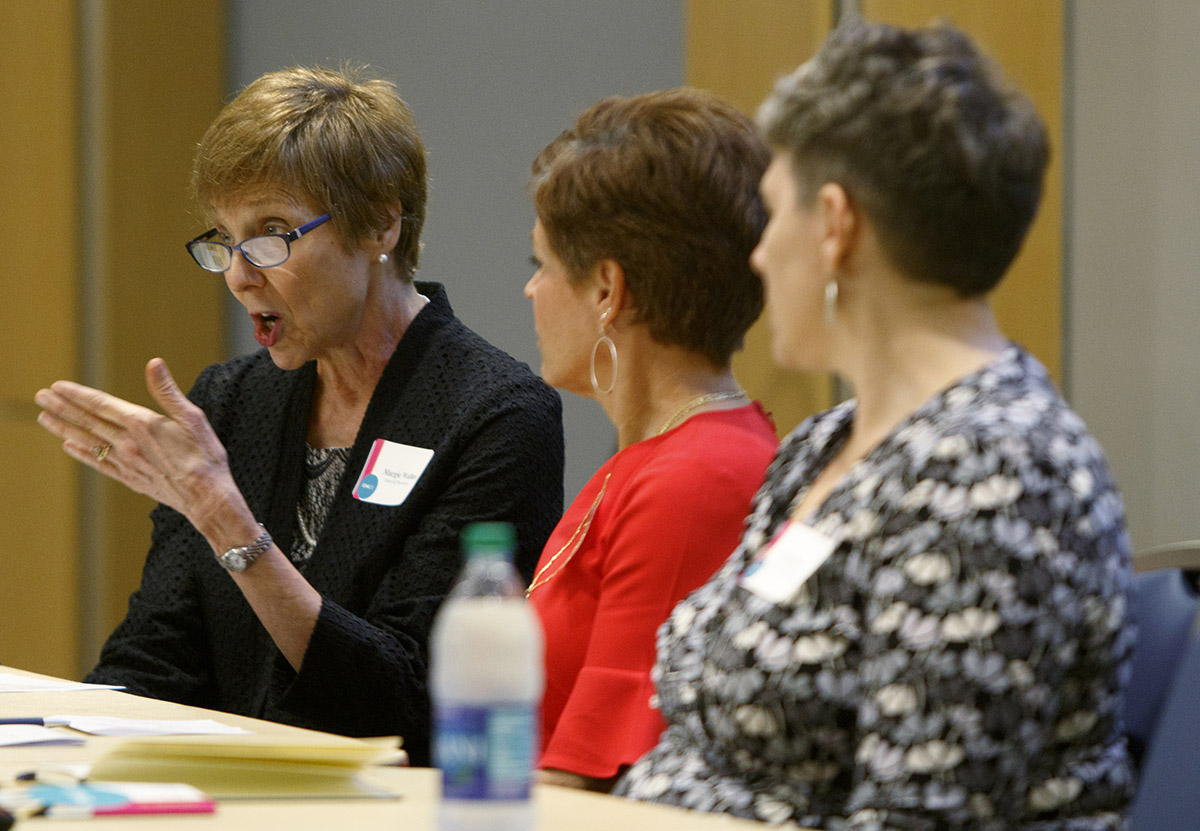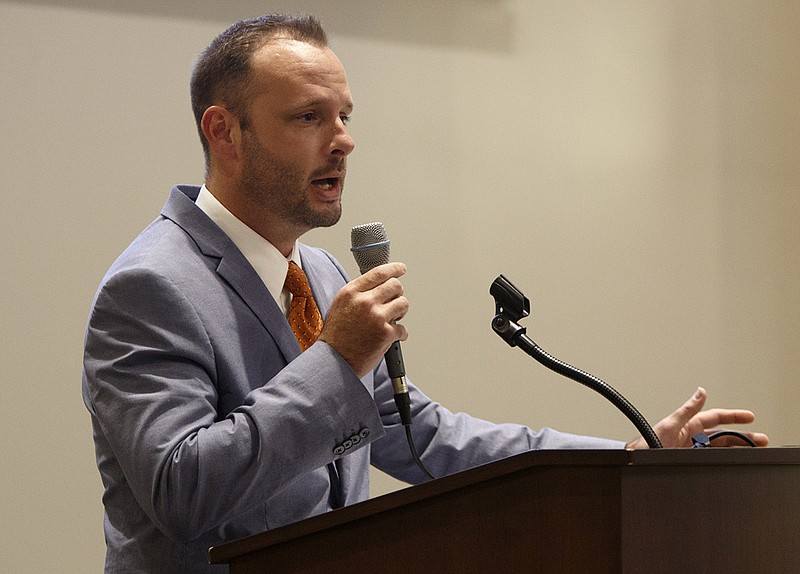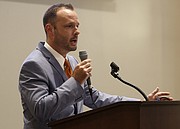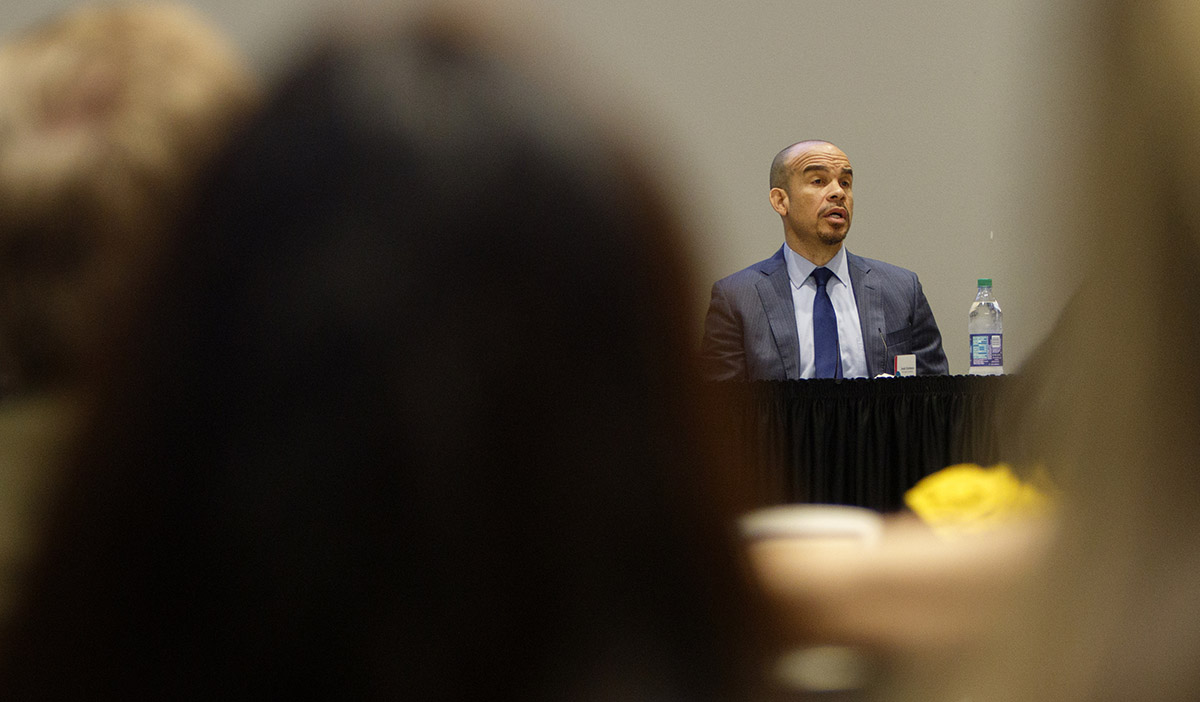Two years into its work, Chattanooga 2.0 is looking at how to accelerate the progress its coalition of business and community leaders, educators and foundation personnel has made in achieving its goal to make Chattanooga the "smartest city in the South."
Much of the coalition's focus has been around early childhood programs, and that is where it has seen the most progress, officials said.
GOALS OF CHATTANOOGA 2.0
Chattanooga 2.0 has two main goals:1. To double the percentage of graduates from Hamilton County Public Schools that obtain a post-secondary degree or credential, from 30 percent to 60 percent by 2025.2. To increase the overall percentage of adults in Hamilton County with a college degree of technical training certificate from 38 percent to 75 percent by 2025.
A hospital visitation program to provide new parents with information about Chattanooga Basics, a kindergarten-readiness summer camp, community workshops and professional development on adverse childhood experiences are among the many programs that have grown out of the Early Matters Working Group, one of the coalition's priority areas.
But as the coalition celebrated its second year of accomplishments, executive director Jared Bigham said Tuesday that it is looking ahead.
"When you convene a plan, that's the fun part," Bigham said. "It gets real when you have to implement that plan, and act ... We have to be willing as a coalition to step back and say what's not working."
Chattanooga 2.0, launched in 2015, is an initiative started by the Benwood Foundation, the Chattanooga Area Chamber of Commerce, the Hamilton County Department of Education and the Public Education Foundation.
It's centered around two main goals - to double the percentage of Hamilton County Schools graduates who obtain a post-secondary degree or credential, as well as the overall percentage of adults with a post-secondary education, by 2025.
"What we know is the system isn't working. And it's not working for every student effectively. So how do we create the system, build the system and be the system that will provide adequate access to allow students the opportunities to be exposed to opportunities?" said Stacey Lightfoot, vice president of college and career success for the Public Education Foundation. "So what excites me about this work is how the community has galvanized around this notion that we need to do more work to get educated, to get degrees and get credentials in order to change the trajectory of their lives."
Early childhood, K-12 and post-secondary make up the three focus areas for Chattanooga 2.0 as it aims to improve opportunities and outcomes from the cradle to an individual's career, and therefore the coalition has had a hand in almost every education-related program or initiative in the past few years.
The Smart City Venture Fund, launched and administered by the Benwood Foundation, has helped fund some of the groups' work such as contributing to Camp Kindergarten, the new Chattanooga Teaching Fellows program established alongside Lee University and UTC, and other initiatives.
One of the school district's biggest initiatives this year - 20 Future Ready Institutes - also is the result of 2.0 partnerships. Launched under the leadership of new Superintendent Bryan Johnson, the institutes are industry-themed, small learning academies embedded in the district's traditional high schools, aimed at introducing students to specific industries and providing pathways into the workforce.
Other work includes partnerships with post-secondary institutions including the University of Tennessee at Chattanooga, Chattanooga State Community College, its Tennessee College of Applied Technology and the school district to increase access to higher education and even create new credentials, such as new advanced manufacturing paraprofessional certification programs. Those partnerships have caught attention state- and nationwide.
"This is unique across the country in the range of stakeholders willing to work together and roll up their sleeves," said Josh Edelman, deputy director of K-12 education for The Gates Foundation. "The amount of work you're doing across early learning, K-12, post-secondary, with the community involved actively. That's another thing we also see is, oftentimes, people do things to the community and not with the community. I applaud that fact that there's so many people working in the room across the education sector, the community, business, political leaders and post-secondary institutions. That is unique across the country right now."
The coalition highlighted all the work that's been accomplished in the past year during a half-day convening Tuesday morning at UTC, attended by people from across the community - nonprofits and foundations, businesses, elected office and Hamilton County Schools. The conversation was split into three panel discussions focused on each priority area.
 Ounce of Prevention Director of Policy Partnerships and National Policy Director Margie Wallen, left, speaks on a early childhood panel during a celebration for Chattanooga 2.0's second year in the Tennessee Room at the University Center on the campus of the University of Tennessee at Chattanooga on Tuesday, July 31, 2018 in Chattanooga, Tenn.
Ounce of Prevention Director of Policy Partnerships and National Policy Director Margie Wallen, left, speaks on a early childhood panel during a celebration for Chattanooga 2.0's second year in the Tennessee Room at the University Center on the campus of the University of Tennessee at Chattanooga on Tuesday, July 31, 2018 in Chattanooga, Tenn.After the public recap event, the coalition's more-than-40-member steering committee met for an afternoon of strategic planning.
Bigham said some of the areas of focus the group has set its eyes on for Year 3 include the afterschool and summer programs space, in regard to special populations like those advocated for by the Chattanooga Inclusive Working Group, and replicating successful programs already in place.
"Where we see our role to play in the K-12 place is afterschool and summer programs, helping coordinate those efforts and making sure a program aligns with the mission of the district," he said.
Bigham used the Bridge Scholars program, a 5-week program for rising sixth- and seventh-graders hosted at The McCallie School, as an example.
"We need to find ways to replicate the good work they are doing," he said.
As the coalition enters into strategic planning for Year 3, Bigham also emphasized that the group might sometimes need to prioritize.
CHATTANOOGA 2.0’S 10 STRATEGIES
1. Strength supports for parents and families2. Create an early learning network3. Reimagine learning for the 21st century4. Increase the focus on literacy for all students5. Support great teachers in every school and classroom6. Empower school leaders7. Ensure high expectations and equity for all students8. Prepare all students for college and career9. Increase post-secondary completion10. Connect more residents to high-demand jobs
"We need to try new things and also admit when something isn't working," he said. "That doesn't always mean new dollars, but re-purposing dollars and effort."
Dan Challener, president of the Public Education Foundation, said the organization is focused on students' post-secondary attainment, including a focus on four high schools in particular - Brainerd, East Ridge, Howard and Tyner - as well as growing Project Inspire, its teacher residency program.
Challener emphasized that the foundation also strives to ensure its focus aligns with the needs of the school district.
Chattanooga Chamber of Commerce President Christy Gillenwater, who has been on the job for about eight months, also praised the coalition's efforts, citing it as one of the things that drew her to Chattanooga.
"When I really dug in, I was really taken by the magnitude of the effort and the individuals who had signed on and the plethora of organizations and volunteers who are part of the family that is Chattanooga 2.0," she said. "We have extremely solid work going on in every stage in the process ... I think that's a unique perspective here."
Contact staff writer Meghan Mangrum at mmangrum@timesfreepress.com or 423-757-6592. Follow her on Twitter @memangrum.


